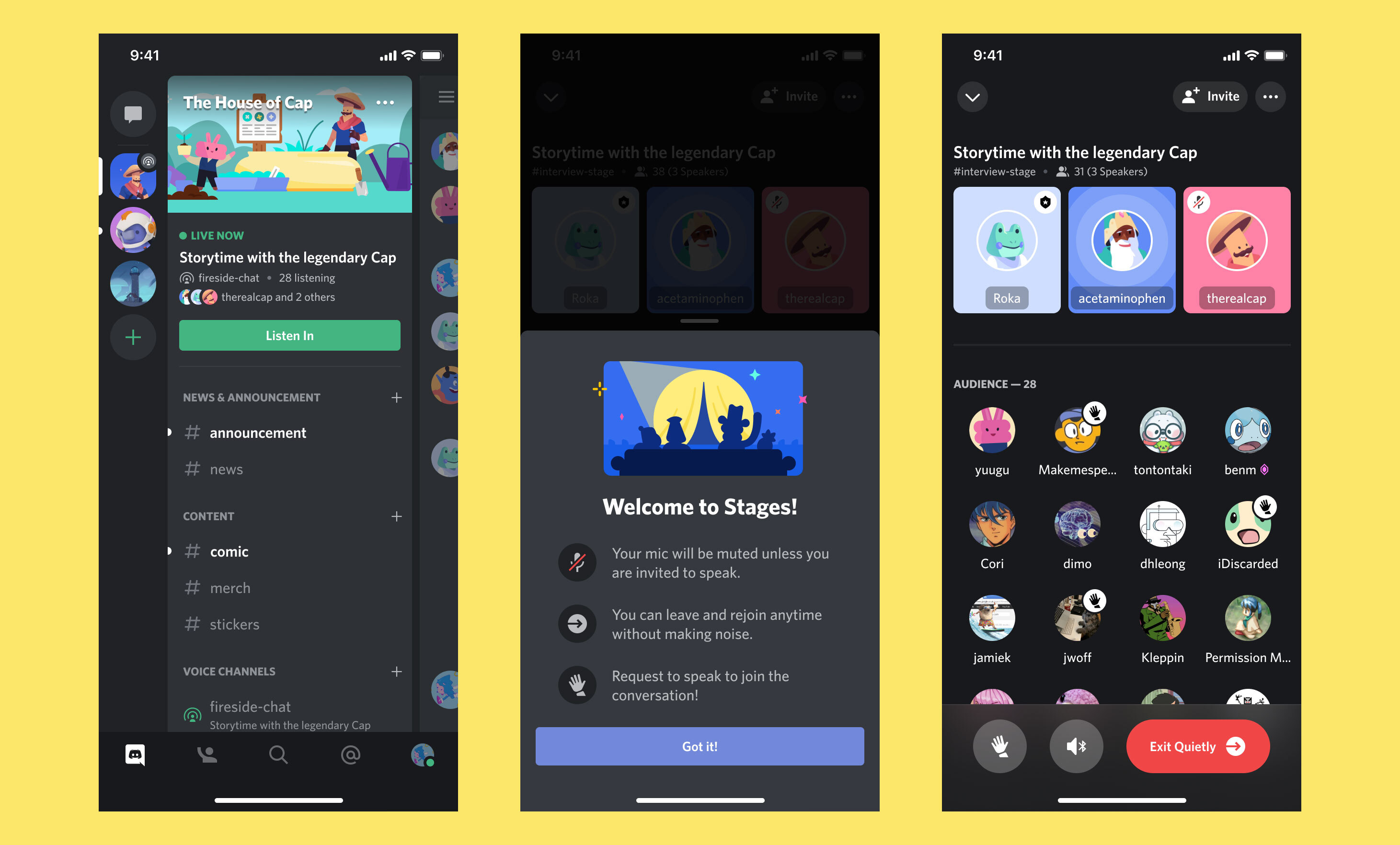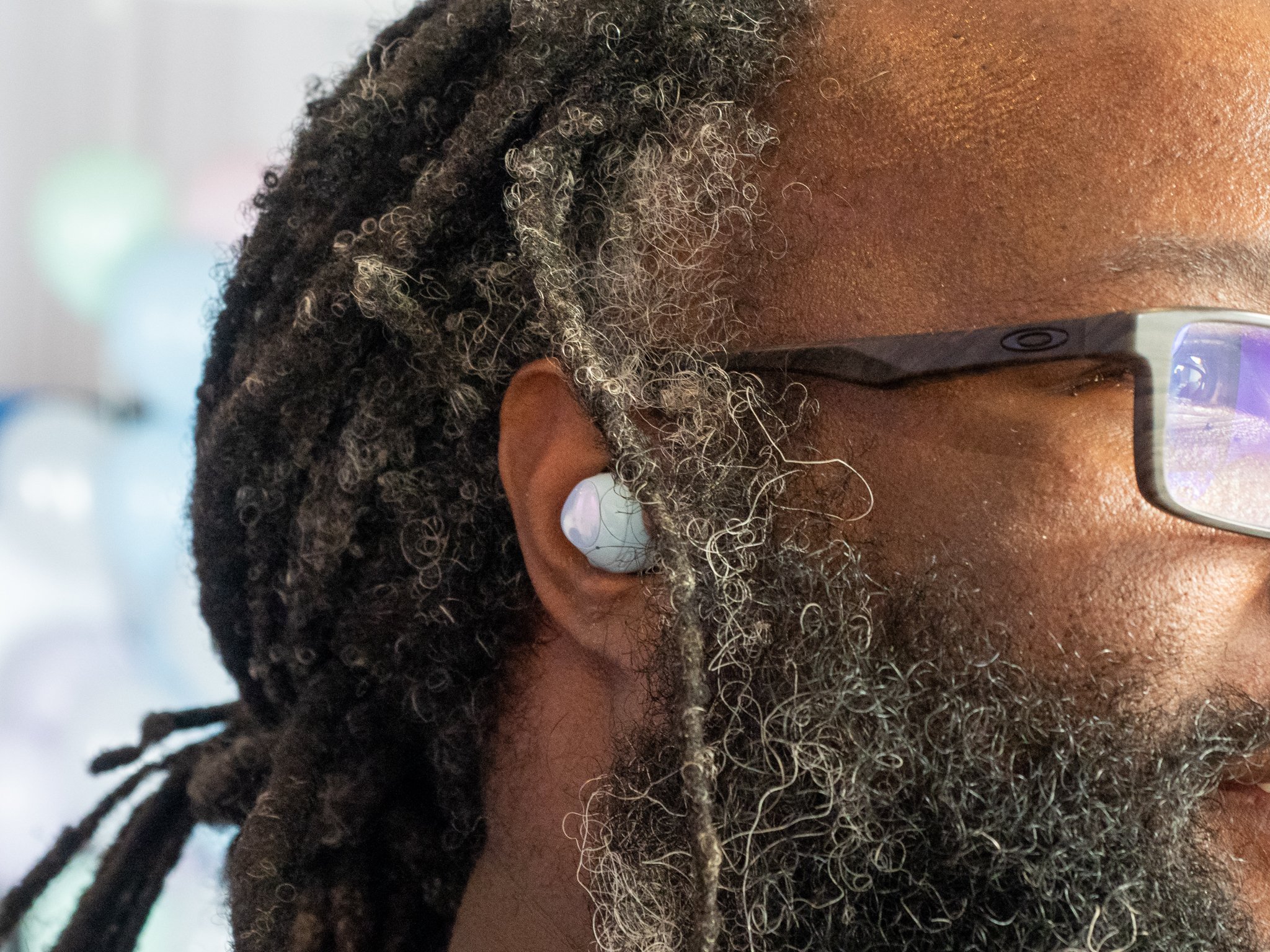This Week in Apps - Clubhouse clones, WWDC21, apps have their best-ever quarter - Android
Welcome back to This Week in Apps, the weekly TechCrunch series that recaps the latest in mobile OS news, mobile applications and the overall app economy. The app industry is as hot as ever, with a record 218 billion downloads and $143 billion in global consumer spend in 2020.
Consumers last year also spent 3.5 trillion minutes using apps on Android devices alone. And in the U.S., app usage surged ahead of the time spent watching live TV. Currently, the average American watches 3.7 hours of live TV per day, but now spends four hours per day on their mobile devices.
Apps aren’t just a way to pass idle hours — they’re also a big business. In 2019, mobile-first companies had a combined $544 billion valuation, 6.5x higher than those without a mobile focus. In 2020, investors poured $73 billion in capital into mobile companies — a figure that’s up 27% year-over-year.
This Week in Apps will soon be a newsletter! Sign up here: techcrunch.com/newsletters
This week we’re looking into app store trends, Apple’s upcoming WWDC, new App Store rejections and what they mean for ATT (App Tracking Transparency), and whatever happened to that Arizona App Store bill, among other stories.
Top Stories
Apps just had the biggest quarter on record
Big news for the app economy this week, as App Annie reported that consumer spending on mobile apps broke a new record. According to new data, worldwide consumers in Q1 2021 spent $32 billion on apps across both iOS and Google Play, up 40% year-over-year from Q1 2020. It’s the largest-ever quarter on record, with mobile consumers spending roughly $9 billion more in Q1 2021 compared with Q1 2020, in part due to the pandemic’s continued impacts.
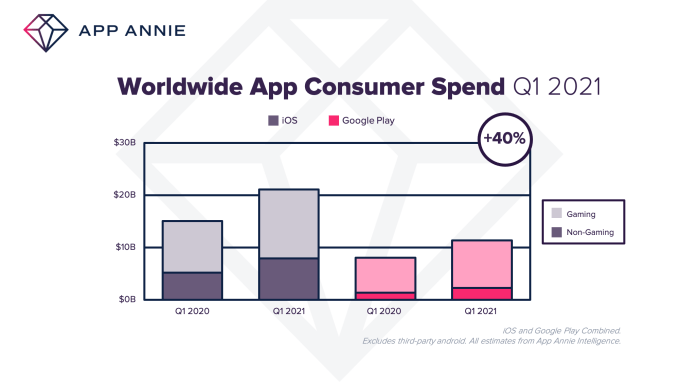
Image Credits: App Annie
Although iOS saw larger consumer spend than Android in the quarter — $21 billion versus $11 billion, respectively — both stores grew by the same percentage, 40%. Gaming drove a majority of the quarter’s consumer spending, as usual, accounting for $22 billion of the spend — $13 billion on iOS (up 30% year-over-year) and $9 billion on Android (up 35%).
Apple begins rejecting apps with fingerprinting tech
With the launch of iOS 14.5 looming, reports circulated this week that Apple has begun rejecting apps that use third-party SDKs that track users via a method called device fingerprinting. The Adjust SDK was one that didn’t yet comply with Apple’s new App Tracking Transparency guidelines, causing apps that included the SDK to be rejected. That could have been a large number of possible rejections, as Adjust’s website claims it’s trusted by more than 50,000 apps. But Adjust soon updated its SDK (open-sourced and here on GitHub), to hopefully re-enable app updates for its customers.
The App Tracking Transparency (ATT) changes have thrown a whole industry into disarray as companies scramble to comply and diversify their revenues. Snap, however, was found to be looking into alternative ways to bypass ATT by gathering data like IP addresses from companies that analyze ad campaigns to see if it could then cross-reference that data with its own, in order to continue tracking its users. Snap told the Financial Times it had tested the technique, called probabilistic matching, to test the impact of Apple’s policies, but claimed it intended to discontinue the program after Apple introduced its changes. (Sure Jan!) The company says it believes that tracking individual users will no longer be allowed going forward, but gathering data on “cohorts” would be. On Thursday, Apple sent letters to developers warning them to remove code that supported probabilistic matching, just in case.
WWDC 2021 announced
WWDC will again be virtual, Apple announced this week. The online event will take place June 7 to 11, as it did last year, allowing developers worldwide to tune in to watch prerecorded keynotes and sessions, and virtually network and learn from Apple engineers and employees. Though April 18, students can submit their Swift playground to this year’s Swift Student Challenge to win exclusive outerwear and Apple pins.
Everyone has already begun to read wayyyy too much into the imagery Apple published, which shows Memoji characters wearing glasses looking at a Mac screen. Is Apple teasing AR glasses?, some wondered. That doesn’t seem likely, though. The glasses are just a way to reflect the computer screen in a picture whose message largely conveys, yep, it’s another virtual event this year.
The Arizona App Store bill is dead
 The bill was the work of the Coalition for App Fairness, led by Epic Games, Spotify, Tile and other developers who want alternatives to paying app store commissions and alternative distribution channels. Last week, it had been unclear why the AZ Senate skipped the vote on the bill, which had been passed by the AZ House. But according to the bill’s (HB2005) backer, Rep. Regina Cobb, speaking to The Verge, the decision was due to heavy lobbying by Apple and Google, which caused Senate members who had agreed to a vote to waiver. When the votes weren’t there, the Senate decided to skip bringing it up altogether.
The bill was the work of the Coalition for App Fairness, led by Epic Games, Spotify, Tile and other developers who want alternatives to paying app store commissions and alternative distribution channels. Last week, it had been unclear why the AZ Senate skipped the vote on the bill, which had been passed by the AZ House. But according to the bill’s (HB2005) backer, Rep. Regina Cobb, speaking to The Verge, the decision was due to heavy lobbying by Apple and Google, which caused Senate members who had agreed to a vote to waiver. When the votes weren’t there, the Senate decided to skip bringing it up altogether.
Cobb, in an email to TechCrunch, confirmed the same. “We have been working with members on the committee and had the votes a few days prior,” she said. “Just before the committee was set to proceed, the Chairman notified the lobbyist for App Fairness that the votes were not there so he did not want to waste committee time on the issue.”
Weekly News
Platforms: Apple
 Apple released the iOS 14.5 beta 6 to developers, which includes one major change: the release of new Siri voices. With iOS 14.5, Siri will no longer default to a female voice, but will rather allow customers to choose from a set of voices, presented in random order. Prior to the release, there had been some expectation that beta 5 would be the last before the public release, but that turned out to not be the case. However, now that beta 6 has arrived, the Release Candidate could follow as soon as next week.
Apple released the iOS 14.5 beta 6 to developers, which includes one major change: the release of new Siri voices. With iOS 14.5, Siri will no longer default to a female voice, but will rather allow customers to choose from a set of voices, presented in random order. Prior to the release, there had been some expectation that beta 5 would be the last before the public release, but that turned out to not be the case. However, now that beta 6 has arrived, the Release Candidate could follow as soon as next week.
Ahead of WWDC 2021, Apple updated its Apple Developer app. The app offers an updated look-and-feel, which now supports a sidebar navigation on iPad, full-screen video on larger Mac displays and a new way to discover content to watch and read in an updated Search section. As with last year’s WWDC, attendees will be able to connect with and tune into announcements, sessions and 1:1 labs via the Developer app.
 U.S. users spent an average of $138 on iPhone apps in 2020, and the number is expected to grow to $180 in 2021, reported Sensor Tower. Throughout 2020, consumers turned to iPhone apps for work, school, entertainment, shopping and more, driving per-user spending to a new record and the greatest annual growth since 2016. Per-device spending on mobile games was a large part of that figure, growing 43% year over year from $53.80 in 2019 to $76.80 in 2020. That’s more than 20 points higher than the 22% growth seen between 2018 and 2019, when in-game spending grew from $44 to $53.80.
U.S. users spent an average of $138 on iPhone apps in 2020, and the number is expected to grow to $180 in 2021, reported Sensor Tower. Throughout 2020, consumers turned to iPhone apps for work, school, entertainment, shopping and more, driving per-user spending to a new record and the greatest annual growth since 2016. Per-device spending on mobile games was a large part of that figure, growing 43% year over year from $53.80 in 2019 to $76.80 in 2020. That’s more than 20 points higher than the 22% growth seen between 2018 and 2019, when in-game spending grew from $44 to $53.80.
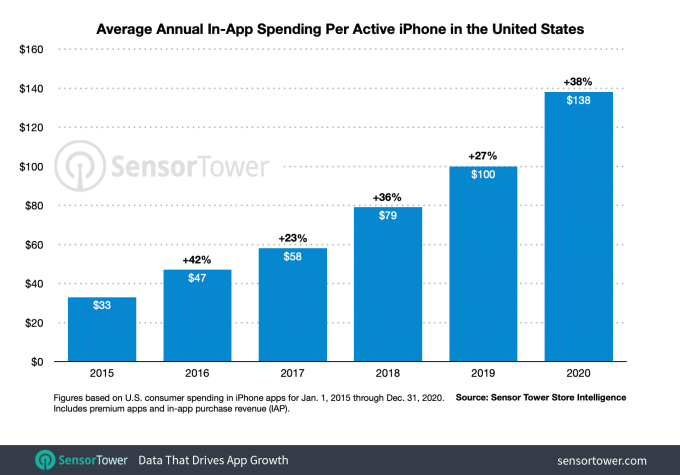
Image Credits: Sensor Tower
Platforms: Google
 Google will begin to limit Android 11+ apps from being able to see what other apps the user has installed on their devices starting on May 5. The company now considers this “sensitive information,” though for years had allowed the practice. That made it easy for data-gathering apps that catalog to operate. Now, Google will only allow a few exceptions — apps that will be able to use the permission include antivirus, file managers and browsers. Expect to see data-gathering firms quietly release those sorts of apps in the near future.
Google will begin to limit Android 11+ apps from being able to see what other apps the user has installed on their devices starting on May 5. The company now considers this “sensitive information,” though for years had allowed the practice. That made it easy for data-gathering apps that catalog to operate. Now, Google will only allow a few exceptions — apps that will be able to use the permission include antivirus, file managers and browsers. Expect to see data-gathering firms quietly release those sorts of apps in the near future.
Augmented Reality
Google expanded the AR virtual art galleries in its Arts & Culture app to include three new Pocket Galleries from the Jean Pigozzi Collection and J. Paul Getty Museum.
Health & Fitness
A feature in The Cut this week raises questions about the viability and effectiveness of therapy apps like Talkspace, BetterHelp and AbleTo, some which use dating app-like models for matching clients to therapists as well as similar business models, where you can upgrade to live video and more features. The article questions whether the apps are able to deliver on their promises and notes how some have already faced questions over their use of data, sponsorship deals, treatment of workers and healthcare rule violations.
The global airline industry body IATA said it will launch a digital travel pass for COVID-19 test results and vaccine certificates on iOS by mid-April. The travel pass, meant to help speed up check-ins, is being tested already by U.K.-based Virgin Atlantic, which is using the IATA app on its London to Barbados flight on April 16.
Apple Maps adds COVID-19 travel guidance for over 300 airports worldwide in its recent update. The app will now show COVID-19 health measure information for airports when searched via the app, either through a link to the airport’s own COVID-19 advisory page, or directly on the in-app location card itself.
Social Networks
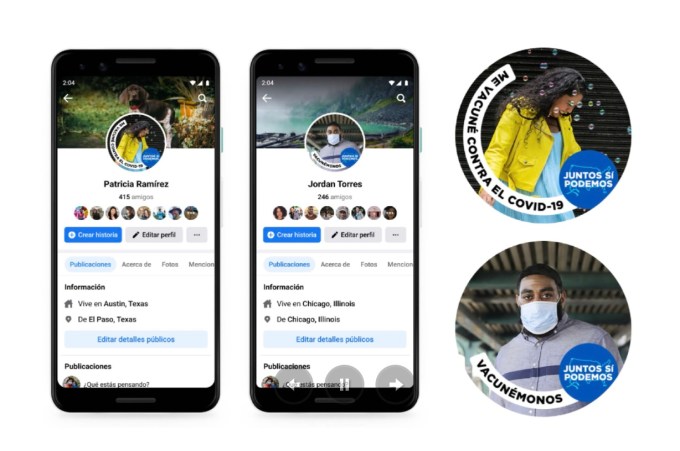
Image Credits: Facebook
Facebook teamed up with the U.S. Department of Health and Human Services (HHS) and Centers for Disease Control and Prevention (CDC) to launch a set of profile frames that will help to encourage vaccinations against COVID-19. The frames, offered in either English or Spanish, will say “Let’s Get Vaccinated” or “I Got My COVID-19 Vaccine.” Research shows that social norms can impact people’s behavior when it comes to their health, so the hope is that, as more adopt the frames, those hesitant about the vaccine will be encouraged to get one. Facebook will also begin showing users how many of their family and friends have been vaccinated, based on the frame usage.
Facebook this week introduced new tools that allow users to more easily switch to the “Most Recent” view or “Favorites” view of their News Feed, as well as tools to limit comments on posts and other changes. The launch came at the same time as the company argued in a long-winded post how its personalization algorithms are not at fault for the world’s ills and the rising spread of misinformation and dangerous health content. Rather, it blames the users who seek out this content and then engage with it. The company is pushing regulators to give it guidelines on misinformation, knowing that it will have an easier time with increased regulations than any new social media upstarts.
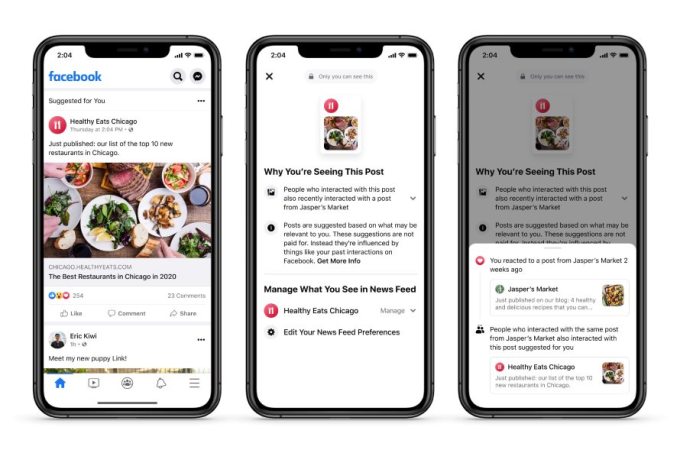
Image Credits: Facebook
Instagram launched Remix on Reels, a TikTok Duets-like feature that allows users to record a video alongside someone else’s content in order to react, collaborate and more. Snapchat is developing its own Duets feature with the same name of Remix, too.
Snap is planning to expand further into hardware, The Information reported, with a new, more advanced version of its Spectacles smart glasses that include AR effects. It’s also reviving an older effort to build its own drone.
Instagram appears to be developing a new way to block the trolls. Reverse engineer Alessandro Paluzzi found in the app’s code a reference to a new option, “Hide More Comments,” which will automatically hide comments with frequently reported words.
Instagram announced it’s expanding its IGTV ads internationally for the first time, initially to markets including the U.K. and Australia.
Facebook extended the deadline for iOS apps using its Facebook Audience Network monetization platform to migrate their apps to bidding only — a response to Apple’s iOS 14 changes. The previous deadline was March 31, which has now been pushed to May 31. Android apps have until September 30.
Streaming & Entertainment
Business-focused social network LinkedIn confirmed it’s building a Clubhouse rival that will offer a speaker stage, as well as tools to join and leave the room, react to comments, request to speak and more. The company sees the feature as an extension of its existing offerings for creators, which also includes things like LinkedIn Live, Stories and newsletters. It says that it believes its offering will be able to differentiate from others because its network will be connected with people’s professional identity, not just a social profile.
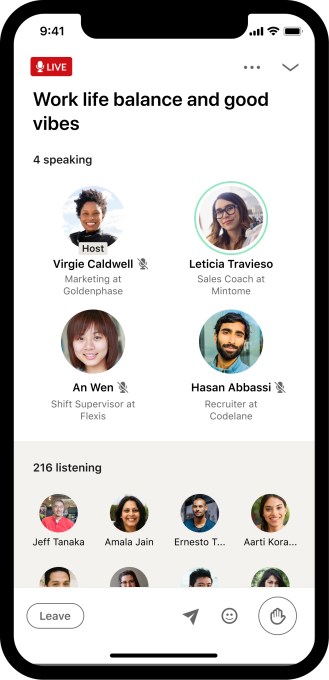
Image Credits: LinkedIn
Spotify significantly expanded its personalized playlist lineup with the launch of three new categories of playlists, called “Spotify Mixes.” Inspired by Daily Mixes, these new options offer easy-to-understand titles that include artist mixes (e.g. Drake Mix), genre mixes (e.g. Pop Mix) and decade mixes (e.g. 2010s Mix).
Audioburst launches a platform that will allow developers to integrate podcast feeds into mobile apps. The platform supports both partial or complete podcasts and radio shows and other streaming audio.
Discord became yet another tech company to offer its own Clubhouse-like feature with the launch of Stage Channels. The feature allows certain people to broadcast to a group of listeners, who can raise their hand to ask questions, while moderators can bring people onstage, remove them or put them on mute. Stage Channels are available on desktop, web and in Discord’s mobile apps.
Got a Galaxy S20 Pair it with some of the best headphones!
03/04/2021 03:00 PM
You still can't buy the base OnePlus 9 Pro
03/04/2021 10:44 PM
Pornhub's first transparency report details how it addresses illegal content
03/04/2021 06:15 PM
RB Leipzig vs Bayern Munich live stream - How to watch Bundesliga football
03/04/2021 10:00 AM
Nonobvious acquisitions are on my 2021 bingo board
03/04/2021 06:00 PM
Pin messages in Telegram chats with this quick guide
03/04/2021 01:00 PM
- Comics
- HEALTH
- Libraries & Demo
- Sports Games
- Racing
- Cards & Casino
- Media & Video
- Photography
- Transportation
- Arcade & Action
- Brain & Puzzle
- Social
- Communication
- Casual
- Personalization
- Tools
- Medical
- Weather
- Shopping
- Health & Fitness
- Productivity
- Books & Reference
- Finance
- Entertainment
- Business
- Sports
- Music & Audio
- News & Magazines
- Education
- Lifestyle
- Travel & Local
2014 © US apps and news

 When active, comments containing frequently reported words will be automatically hidden.
When active, comments containing frequently reported words will be automatically hidden.